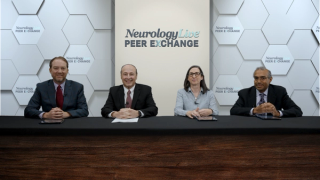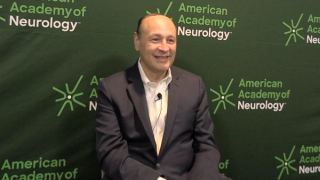
Parkinson Disease
Latest News


FDA Approves Medtronic’s Adaptive Deep Brain Stimulation for Parkinson Disease

M1 Modulatory TAK-091 Improves Cognition in Parkinson Disease, Study Shows
Latest Videos

CME Content
More News

The chair of neurosurgery at the University of Arizona talked about the newly approved infusion therapy that offers continuous medication delivery to improve both motor and non-motor symptoms in Parkinson disease. [WATCH TIME: 5 minutes]

The director of the Parkinson’s Disease and Movement Disorders Center of Boca Raton, Florida, commented on the promising safety of SPN-830 and who may be best suited for treatment with the newly approved therapy. [WATCH TIME: 4 minutes]

Julie Pilitsis, MD, PhD, MBA, chair of neurosurgery at The University of Arizona Tucson, discussed the impact of a newly approved continuous infusion therapy for Parkinson disease.

The 32-week study will enroll 15–20 adults aged 18–80 with Parkinson's-related hyposmia, featuring a 24-week treatment period of twice-daily CYR-064 nasal sprays.

The movement disorders nurse practitioner at The Ohio State University Wexner Medical Center talked about a meeting that equips nurse practitioners and physician assistants to improve movement disorder patient care. [WATCH TIME: 5 minutes]

The director of the Parkinson’s Disease and Movement Disorders Center of Boca Roaton, Florida, gave clinical insight on the function of a newly approved therapy for Parkinson disease, a common neurodegenerative disorder. [WATCH TIME: 3 minutes]

Jonathan Rubin, MD, MBA, chief medical officer at Supernus Pharmaceuticals, talked about the recent approval of the company’s subcutaneous infusion therapy SPN-830 for Parkinson disease.

The director of the Parkinson’s Disease and Movement Disorders Center of Boca Raton, Florida, discussed SPN-830, the first and only FDA-approved subcutaneous apomorphine infusion device for patients with Parkinson disease. [WATCH TIME: 2 minutes]

SPN-830 is a wearable subcutaneous infusion device designed to deliver continuous treatment throughout the waking day, ensuring more consistent control of OFF time.

Neurologists Steven Lewis, MD, and Behrang Saminejad, MD, of Lehigh Valley Health Network, provided commentary on the ways to successfully implement focused ultrasound as a treatment for essential tremor and Parkinson disease.

Adaptive DBS dynamically adjusts stimulation based on patient brain activity, improving therapy customization and motor symptom management in real-time.

The newly announced sham surgery-controlled trial will include 102 patients with moderate PD testing several end points, such as change in ON-time without troublesome dyskinesia, over a 78-week period.

The Delphi-MD platform is designed for nerve stimulation in diagnostic applications, offering clinicians a tool to support objective and personalized treatment approaches in brain health.

Since the Syn-One Test only needs a small punch skin biopsy that can be collected in an office setting, the clinical utility can be enhanced to offer more geographically convenient access for patients earlier in the disease.

Although the primary goal was not met, prasinezumab demonstrated encouraging effects on secondary and exploratory measures, such as time to worsening motor function, Clinical Global Impression of Change, MDS-UPDRS motor scores.

AbbVie recently announced that it is on track to submit the new drug application for its investigational Parkinson disease agent tavapadon to the FDA in 2025.

BIIB122 is a selective, central nervous system-penetrant small molecule that could potentially improve lysosomal dysfunction among patients with LRRK2-associated Parkinson disease.
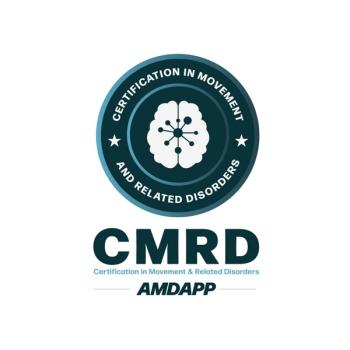
The Association of Movement Disorder Advanced Practice Providers has launched its Certification of Movement & Related Disorder Specialist (CMRD) for advanced practice providers.

To date, BT-267 shows strong potential as a best-in-class LRRK2 inhibitor for Parkinson disease, with a superior safety profile, excellent pharmacokinetics, and innovative development leveraging advanced technologies and biomarker modeling.
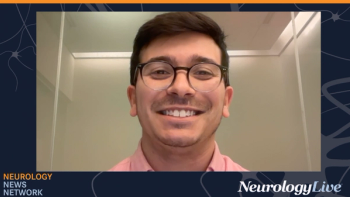
Neurology News Network. for the week ending November 30, 2024. [WATCH TIME: 4 minutes]

In a 76-patient cohort, HL192 was safe and well tolerated across 5 observed dose levels, with a treatment-emergent adverse event incidence that mirrored placebo.

Hearing loss, as defined by objective audiograms, was associated with an additional risk of developing PD later in life in a dose-dependent manner.

Amanda Hare, DNP, a doctor of nursing practice specialized in movement disorders, gave comments on the innovation behind the StrivePD app and how it can revolutionize personalized treatment management for patients with Parkinson disease.
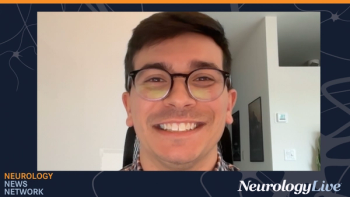
Neurology News Network. for the week ending November 23, 2024. [WATCH TIME: 4 minutes]

Findings from a recently published study suggest patients with Parkinson disease can reduce postural sway as efficiently as neurologically healthy patients when performing horizontal saccades.




